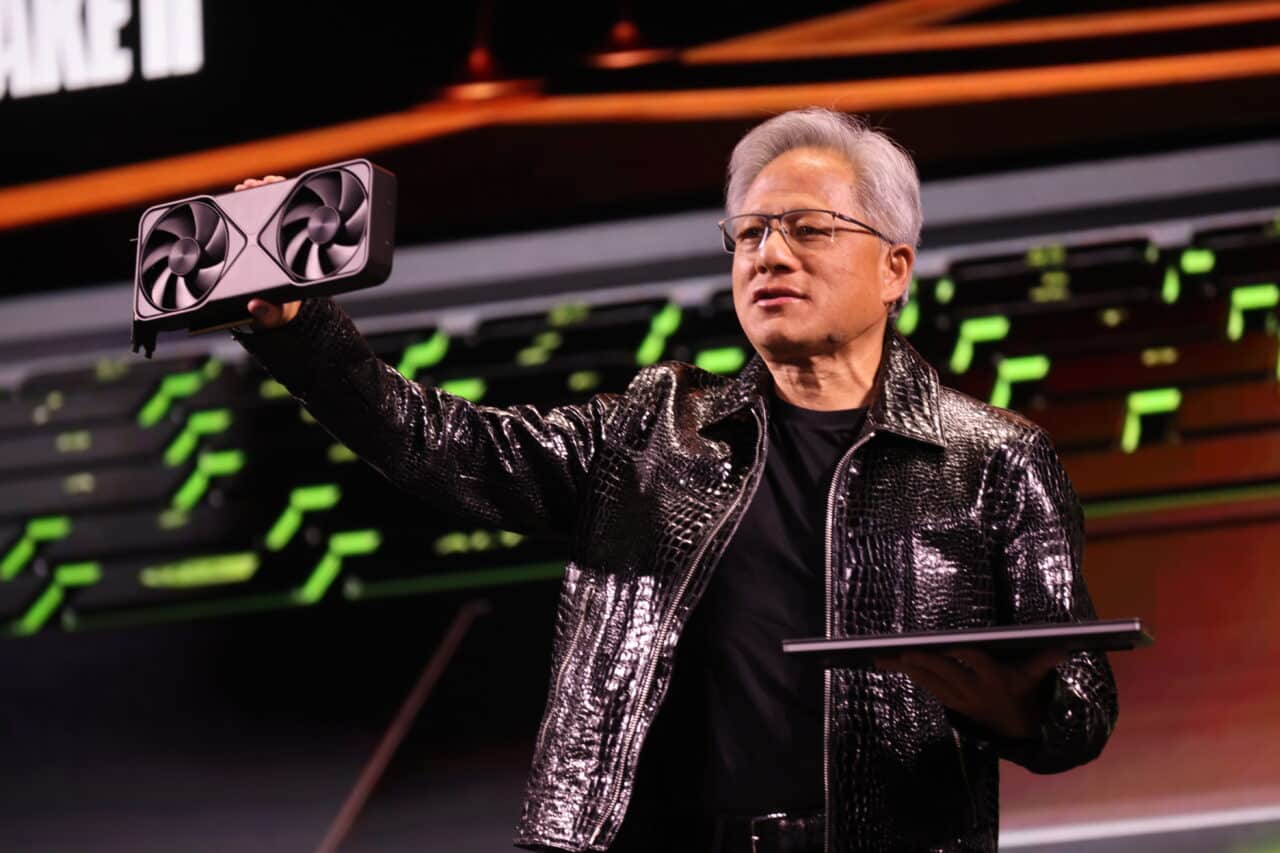The CEO of NVIDIA advocates for a global leadership strategy based on technological openness amid ongoing tensions over export restrictions on AI hardware to China.
In an interview aired by CNN with journalist Fareed Zakaria, NVIDIA CEO Jensen Huang addressed one of the most sensitive issues on the current geopolitical stage: the race for artificial intelligence between the United States and China, and the role of U.S. chips in this competition.
Huang emphasized that restricting technology is not an end in itself but a tactic that, if misapplied, can backfire. “Depriving someone of technology is not a goal. It’s a tactic, and that tactic was not aligned with the objective,” he stated, as reported by Bloomberg.
### Strategic Openness to Maintain AI Leadership
During the interview, Huang insisted that, for the U.S. to maintain its leadership in AI, it’s necessary for its tech stack to be available globally, including for Chinese developers.
> “Our mission, properly stated, is that for the U.S. to lead in AI, we must ensure that American technology stacks are accessible to markets worldwide.”
Huang argued that enabling access to these technologies is crucial to foster global innovation based on American foundations. His comments come amid rising tensions over the sale of high-end GPUs to China, especially those used for AI applications and massive processing tasks.
### “The Chinese military doesn’t rely on our chips”
Asked about the risk that these exports could strengthen the Chinese military, Huang was firm:
> “We don’t have to worry about that because the Chinese military, just like the American, will not base their capabilities on the technologies of their rivals. They simply cannot rely on it because it could be limited at any time.”
He also added that China already possesses massive computing capabilities, with numerous supercomputers built by local engineers. “They don’t need NVIDIA chips or American tech stacks to build their military systems,” he emphasized.
### Political Tensions in Washington and Congressional Letter
The interview took place just before Huang’s upcoming visit to Beijing, scheduled for July 16, marking his second trip to China this year. However, this visit has raised concerns in the U.S. Congress. Senators Jim Banks (Republican) and Elizabeth Warren (Democrat) sent a letter to NVIDIA’s CEO urging him to avoid meetings with representatives linked to China’s military and intelligence apparatus.
The letter warns that the trip could legitimize companies aligned with China’s strategic interests or expose exploitable gaps in current export controls.
### Chinese Data Centers with NVIDIA GPUs
Controversy is also fueled by recent reports indicating that China is building data centers capable of housing over 115,000 NVIDIA GPUs, seemingly violating U.S. trade restrictions. It remains unclear whether these chips were purchased before the restrictions came into effect or through intermediaries.
### A More Receptive White House Toward AI
Since the start of Donald Trump’s new administration, there has been a more favorable stance toward the expansion of AI. The so-called “AI czar,” David Stacks, has publicly advocated relaxing regulations imposed during the Biden era, and an executive order on AI software regulation was shelved earlier this year.
Nevertheless, the strong trade tariffs imposed on China in January are still in place, hindering full normalization of tech trade.
—
### Path Toward New Technological Detente?
Huang’s words represent an attempt to reduce the atmosphere of technological confrontation and promote a model of controlled cooperation, where the U.S. retains leadership without closing off global adoption of its technologies.
In the midst of the AI dominance race, Huang believes the key is not blocking access but ensuring the world continues to build on an American foundation. However, his strategy carries political risks.
Whether this approach will open a new chapter in U.S.-China tech relations, or if distrust continues to dominate the agenda, will depend on both Washington and Beijing—and the next chip crossing the border.
via: pcgamer

